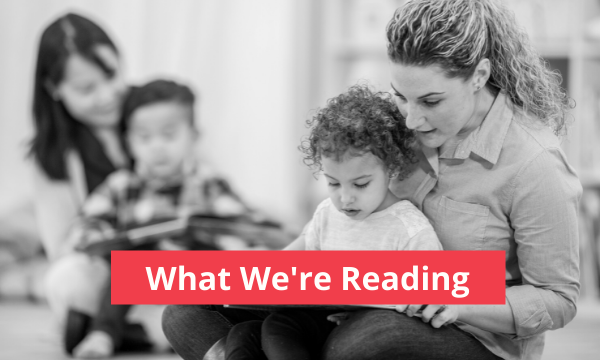We know that the first five years of a child’s life are foundational for healthy brain growth and development. Before age five, a child’s brain makes one million new neural connections per second! We also know that racial and economic injustice begin to affect a child’s life before birth, which is why early childhood is such an important time to eliminate disparities based on race, ethnicity, income, geography, disability, language, immigrant and refugee status, houselessness and foster care.
A new report from ZERO TO THREE explores some of the key ways that states across the US are addressing bias and equity. Below are some of the major takeaways from the report, outlining what states are doing to center racial equity in state early childhood policies.
Thoughtful collection and use of data
- Data collection must focus on identifying and addressing challenges in reporting on children and families in all racial and ethnic groups, including communities that have been under-reported because of smaller population size.
- Data collection must be committed to equity and recognize the experiences of all babies, young children, and families — especially from communities who have been overburdened, and under-resourced, and historically excluded from data.
Lifting up family and provider voices
- The policymaking process fails to center those who are most directly impacted by policy decisions, which reinforces current and historical inequities grounded in systemic racism.
- Families and child care providers are the experts in their own experiences and know what they need; it is crucial that they are recognized for their expertise, based on their lived experience.
Policies to increase equity
- Led by Early Childhood Coalition partner, Black Child Development PDX, Oregon’s Senate Bill 236 will eliminate suspension and expulsion in early childhood programs by 2026, thanks to strong advocacy efforts from BCD PDX and Reimagine Oregon.
- Illinois’ Infant/Early Childhood Mental Health Consultations Act increased childhood mental health consultation services, addressed childhood behavioral health, and extended early intervention for three year olds.
- California’s Dignity in Pregnancy and Childbirth Act was the first legislation of its kind in the US, requiring implicit bias training for all health care professionals working in perinatal services. It also required states to track outcomes for pregnant women, and mandated hospitals and birthing centers to provide information on how patients could file discrimination complaints.
Additional Resources
- Child Care Crisis Central in National News
- Podcast: Parent Advocacy, SB 236 and Changing the way we Talk About Young Children

